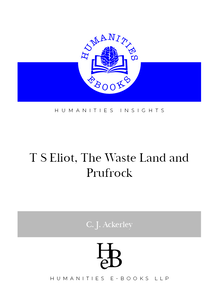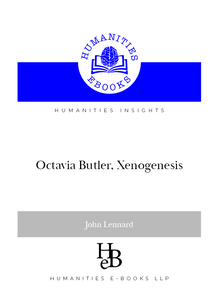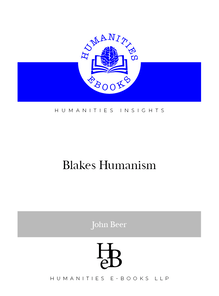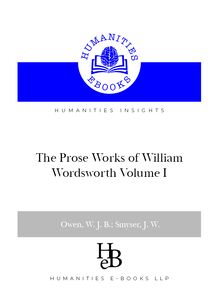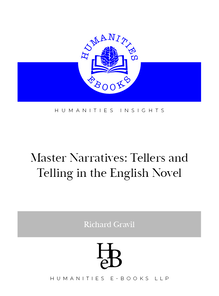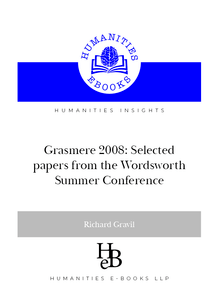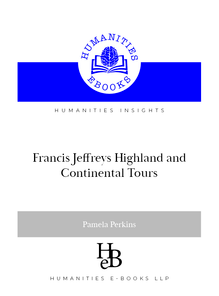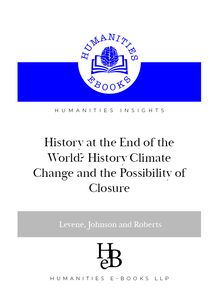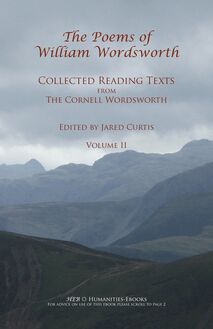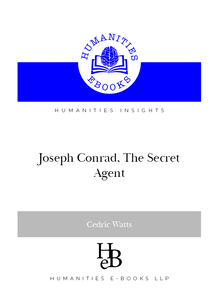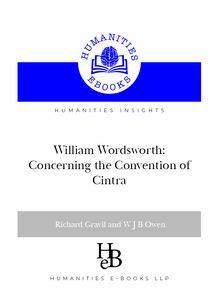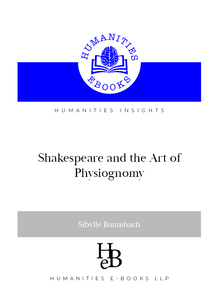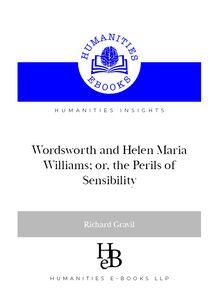-
 Univers
Univers
-
 Ebooks
Ebooks
-
 Livres audio
Livres audio
-
 Presse
Presse
-
 Podcasts
Podcasts
-
 BD
BD
-
 Documents
Documents
-
- Cours
- Révisions
- Ressources pédagogiques
- Sciences de l’éducation
- Manuels scolaires
- Langues
- Travaux de classe
- Annales de BEP
- Etudes supérieures
- Maternelle et primaire
- Fiches de lecture
- Orientation scolaire
- Méthodologie
- Corrigés de devoir
- Annales d’examens et concours
- Annales du bac
- Annales du brevet
- Rapports de stage
La lecture à portée de main
244 pages
English
Découvre YouScribe en t'inscrivant gratuitement
Je m'inscrisDécouvre YouScribe en t'inscrivant gratuitement
Je m'inscris
Obtenez un accès à la bibliothèque pour le consulter en ligne
En savoir plus
En savoir plus
244 pages
English
Obtenez un accès à la bibliothèque pour le consulter en ligne
En savoir plus
En savoir plus

Description
Previously unpublished tour diaries by one of the most influential journalists of the Romantic era.
Sujets
Informations
| Publié par | Humanities eBooks |
| Date de parution | 11 janvier 2021 |
| Nombre de lectures | 0 |
| EAN13 | 9781847601025 |
| Langue | English |
| Poids de l'ouvrage | 1 Mo |
Informations légales : prix de location à la page 0,0498€. Cette information est donnée uniquement à titre indicatif conformément à la législation en vigueur.
Extrait
Francis Jeffrey’s Highland and Continental Tours
Edited by Pamela Perkins
HEB☼FOR ADVICE ON THE USE OF THIS EBOOK PLEASE SCROLL TO PAGE 2
Readingt
*This book is designed to be read in single page view, using the ‘ît page’ command. *To navigate through the contents use the hyperlinked ‘Book-marks’ at the left of the screen. *To search, click the magnifying glass symbol and select ‘show all results’. *For ease of reading, use <CTRL+L> to enlarge the page to full screen, and return to normal view using < Esc >. *Hyperlinks (if any) appear in Blue Underlined Text.
Permissions
Your purchase of this ebook licenses you to read this work on-screen, on a computer owned by or allocated to you. No part of this publication may be otherwise reproduced or transmitted or distributed without the prior written permission of both the copyright owner and the publisher. You may print one copy of the book for your own use but copy and paste functions are disabled. Making or distributing copies of this book, or permitting others to do so, would constitute copyright infringement and would be liable to prosecution. Thank you for respecting the rights of the author.
ISBN 9781847601025 Ebook ISBN 9781847601032 Paperback
Pamela Perkins
Francis Jeffrey’s Highland and Continental Tours
HEB☼Humanities-Ebooks, LLP
Copyright
© Pamela Perkins, 2009
The editor has asserted her right to be identiîed as the author of this Work in accordance with the Copyright, Designs and Patents Act 1988.
First published byHumanities-Ebooks, LLP, Tirril Hall, Tirril, Penrith CA10 2JE
ISBN 9781847601025 Ebook ISBN 9781847601032 Paperback
Page 49 of Jeffrey’s Highland Journal, National Library of Scotland
The Editor
Pamela Perkins teaches eighteenth-century and Romantic litera-ture at the University of Manitoba. She has edited Robert Bage’s Hermsprongand Elizabeth Hamilton’sTranslations of the Letters of a Hindoo Rajahfor Broadview Press, and Elizabeth Hamilton’s Cottagers of Glenburnie for the Association of Scottish Literary Studies
Contents
Acknowledgements
Introduction: Francis Jeffrey and Travel – Landscape, Taste and Aesthetics
Works Cited
General Note on Transcription
The Highland Tour, 1800
The Continental Tour, 1823
Jeffrey’s Itinerary
4
8
9
8
52
54
104
104
Acknowledgements
I am very grateful to the National Library of Scotland, and particularly to Sheila Mackenzie, for giving me permission to transcribe and reproduce these two journals and for permission to use images from them for the cover and frontispiece of this book. I owe more general thanks to the staff of the manuscript reading room at the NLS for their efîciency and helpfulness while I was working there on the main transcription and on the research for the introduction. A grant from the University of Manitoba / Social Science and Humanities Research Council of Canada Research grants program allowed me to spend the time in Edinburgh necessary to carry out this project. I am also grateful to Richard Gravil both for agreeing to publish the journals in the îrst place and for his very prompt editorial help and advice throughout my work on the project. Charlie Peters helped me with the transcription by preparing a digital scan of a microîlm of the journals supplied by the NLS, while Alyson Brickey provided assistance in the later stages by proofreading the înal version of both the text and the notes. Peter Garside very kindly gave some advice on words and phrases in the manuscript that I was unable to decipher; Kirsteen McCue, Cliff Eyland, Vanessa Warne, and Judith Owens have also helped me with some of the more illegible words. All errors and omissions of course remain my own. Finally, I would like to thank Jim Alison for directing my attention to some of the late eighteenth-century writing about the Trossachs, in particular Sarah Murray’s book, and Louise Dickins for providing me with such lovely places to stay while I was working in Edinburgh.
Pamela Perkins, August 2009
Introduction: Francis Jeffrey and Travel – Landscape, Taste and Aesthetics
Francis Jeffrey, the co-founder and inaugural editor ofThe Edinburgh Review, may have been one of the most feared and proliîc critics of the opening decades of the nineteenth century, but his literary reputation in the century and a half since his death has been disproportionately shaped by just four of the hundreds of thousands of words that he wrote for theEdinburgh: the notorious exclamation “This will never do!” with which he opened his essay on Wordsworth’sExcursion. Both the importance of Jeffrey’s target and the tone of lofty, magisterial disdain have ensured that this particular review has remained by far the best-known example of his writing; it has been used repeatedly as a brief, strikingly memorable example of culturally entrenched resistance to poetic innovation, and Jeffrey has been remembered mainly for his presumed inability to appreciate one of the most important writers of his era. Indeed, a major late-twentieth century study of Romantic-era literary professionalism, which includes a thoughtful and insightful analysis of the signiîcance of the literary magazines to the intellectual history of the period, refers only in passing, and more or less dismissively, to “Francis ‘This will never do!’ Jeffrey” (Siskin 148). Yet reducing Jeffrey to an exemplar of anti-Wordsworthian aesthetics attens out one of the early nineteenth century’s more complex bodies of critical writing and encourages us to overlook his more nuanced and sophisticated explorations of some of the major intellectual and cultural debates of the period. In particular, in both his published work on aesthetic theory and in his more private meditations on the sublime and the picturesque, Jeffrey demonstrates his deep interest in, even if not his complete agreement with, the ideas of his now more-famous contemporaries on landscape, nature, and aesthetics. It is in this respect that the two journals transcribed here, neither of which have ever before been published, become of
10
Francis Jeffrey’s Tours
interest as something rather more than minor historical curiosities, the forgotten private jottings of a writer whose published works have until recently been more or less abandoned by literary history. In these reections on his travels through what were already some of the most written-about landscapes in Scotland and in continental Europe, Jeffrey demonstrates repeatedly that he was fascinated, on a number of levels, by the beauties of the natural world, responding to them both intellectually and with what a twenty-îrst century reader might call—if the author were anyone other than Jeffrey—a Wordsworthian intensity of emotion. It is easy enough, of course, to demonstrate that Jeffrey’s reputation for hostility towards the Romantic poets drastically oversimpliîes even the most familiar examples of his published work: he wrote with warmth and sympathy, if not unreserved enthusiasm, about Keats, and his review ofChilde Haroldwas sufîciently positive for Byron to recant his earlier declaration of literary war (inEnglish Bards and Scotch Reviewers) and to pay a polite public compliment to Jeffrey 1 inDon Juan.Indeed, as more than one of Jeffrey’s contemporaries pointed out, with varying degrees of bewilderment or irritation, Jeffrey made no particular secret of the fact that he enjoyed at least some aspects even of Wordsworth’s poetry despite the notorious harshness of his reviews. As Coleridge wrote in theBiographia, with perhaps understandable bitterness, “I myself heard the commander in chief of this unmanly warfare [against Wordsworth] make a boast of his private admiration of Wordsworth’s genius. I have heard him declare, that whoever came into his room would probably înd the Lyrical Ballads lying open on his table” (Coleridge 414). Coleridge, unsurprisingly, takes this privately-expressed admiration forLyrical Balladsas evidence of stunningly bare-faced hypocrisy; at least some later readers have been rather more nuanced, with Martha
In Canto X, Stanzas 6-7: “Dear Jeffrey, once my most redoubted foe [….] I do not know you, and may never know / Your face, – but you have acted on the whole / Most nobly, and I own it from my soul [….] I would rather take my wine / With you, than aught (save Scott) in your proud city.” In stark contrast, Byron never forgave Jeffrey’s fellow reviewer, Henry Brougham, and mocked him (with an obvious pun) immediately before the praise of Jeffrey: “A legal broom’s a moral chimney-sweeper / And that’s the reason he himself’s so dirty” (X. 5).
-
 Univers
Univers
-
 Ebooks
Ebooks
-
 Livres audio
Livres audio
-
 Presse
Presse
-
 Podcasts
Podcasts
-
 BD
BD
-
 Documents
Documents
-
Jeunesse
-
Littérature
-
Ressources professionnelles
-
Santé et bien-être
-
Savoirs
-
Education
-
Loisirs et hobbies
-
Art, musique et cinéma
-
Actualité et débat de société
-
Jeunesse
-
Littérature
-
Ressources professionnelles
-
Santé et bien-être
-
Savoirs
-
Education
-
Loisirs et hobbies
-
Art, musique et cinéma
-
Actualité et débat de société
-
Actualités
-
Lifestyle
-
Presse jeunesse
-
Presse professionnelle
-
Pratique
-
Presse sportive
-
Presse internationale
-
Culture & Médias
-
Action et Aventures
-
Science-fiction et Fantasy
-
Société
-
Jeunesse
-
Littérature
-
Ressources professionnelles
-
Santé et bien-être
-
Savoirs
-
Education
-
Loisirs et hobbies
-
Art, musique et cinéma
-
Actualité et débat de société
- Cours
- Révisions
- Ressources pédagogiques
- Sciences de l’éducation
- Manuels scolaires
- Langues
- Travaux de classe
- Annales de BEP
- Etudes supérieures
- Maternelle et primaire
- Fiches de lecture
- Orientation scolaire
- Méthodologie
- Corrigés de devoir
- Annales d’examens et concours
- Annales du bac
- Annales du brevet
- Rapports de stage
Signaler un problème
YouScribe
Le catalogue
Le service
© 2010-2024 YouScribe
